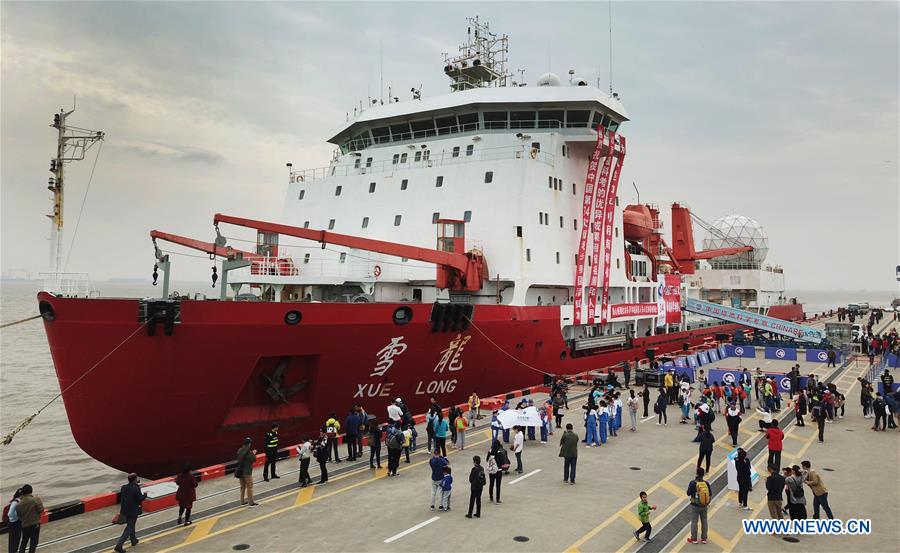Preparation work for the construction of China's fifth Antarctic station has been completed, scientists on the icebreaker Xuelong (Snow Dragon) said on Saturday, after the country's 34th national scientific expedition to Earth's southern polar region.

Temporary housing, a dock and roads have been built at the station on Inexpressible Island in the Ross Sea's Terra Nova Bay, and electric power generation, seawater desalination and long-distance communication have all been established despite severe weather conditions, scientists said at a media briefing after the Xuelong returned to Shanghai following its 165-day expedition.
"Basic surveying and mapping, ecological monitoring, geological exploration and the design of the fifth station have been completed. This is the third year-round station after Changcheng and Zhongshan stations, and the first to be situated on the boundary of the Pacific Ocean," said He Jianfeng, assistant to the chief scientist of this year's 257-member expedition team.
He said the research base will be of great significance because none of China's existing stations - which are used to study things such as the atmosphere, glaciers and astronomy - have a marine research focus.
"This new base on the coast of the Ross Sea - which has the largest continental shelf in the Antarctic region, with rich biodiversity - will be well-used in this respect," he said.
A cottage has also been built nearby to make it easier to watch the 20,000 or so penguins on the island.
"The northern point of the island is home to a large number of penguins, and we hope to keep an eye on them and ensure that the construction of the new station does not harm the local environment," He said.
Construction may be finished by 2022.
Scientists also said they had for the first time discovered marine microplastics, tiny pieces of plastic often used as scrubbers in facial cleansers and toothpastes, in the ocean off the Antarctic Peninsula.
He said microplastics, which reach oceans after passing through wastewater treatment plants, were also found during the national expedition to the Arctic last year.
"That was somewhat understandable as the northern seas are not far from human activity, but it's surprising that they also appeared in the Antarctic," he said.
Lin Weiqing, deputy director of the Shanghai Academy of Environmental Sciences, said microplastics have already been discovered in zooplankton and could eventually find their way to people's stomachs if the zooplankton are consumed by fish and other creatures higher up the food chain.
"That threat has attracted international attention and we'll strengthen monitoring after this discovery," He said.
"If necessary, China, as a responsible power, will unite with other countries to propose that we should take action to protect the Antarctic, which is the common property of mankind."
Source:
By Zhou Wenting | chinadaily.com.cn
